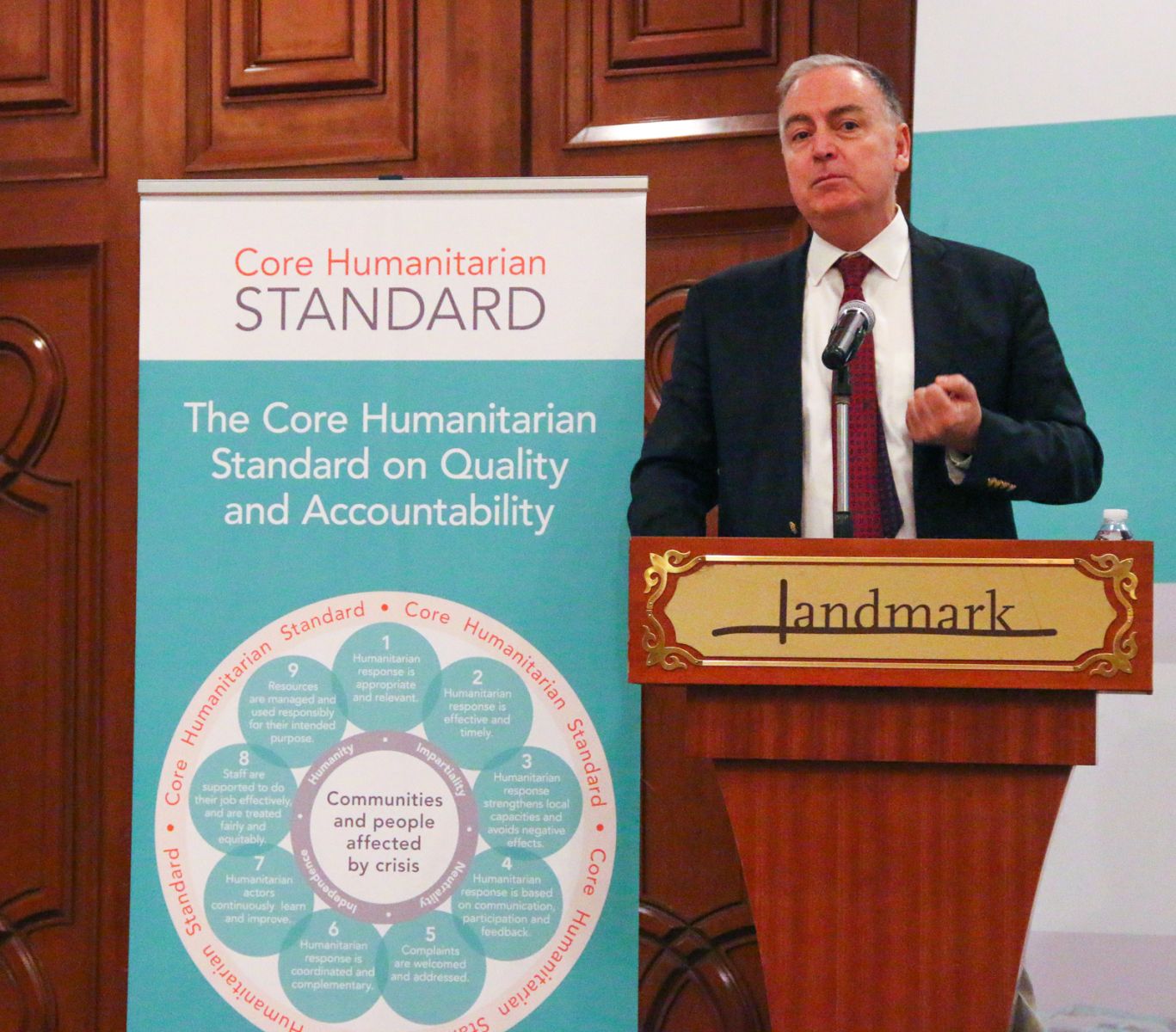Amman CHS Exchange: Conference on global standard to make aid work better
One hundred participants from more than 15 countries gathered in Jordan yesterday for the start of a one and a half-day conference dedicated to exploring how the Core Humanitarian Standard for Quality and Accountability (CHS) can make aid work better for people in crisis.
The CHS Exchange, hosted by the CHS Alliance and Islamic Relief Worldwide, is themed “The Core Humanitarian Standard: A Driver for Change”. It brings together aid workers from 47 national and international humanitarian or development organisations working in the region and globally.
Tanya Wood, Executive Director of the CHS Alliance, said “We are delighted to welcome so many representatives from the MENA region to this peer-to-peer learning event.
“The nine commitments of the CHS set out the framework for principled humanitarian action which puts individuals and communities affected at the heart of the response. Though identifying our specific challenges and, more importantly sharing our solutions, together we can improve the quality and effectiveness of aid.”
The conference opened with a keynote address from Panos Moumtsiz, UN Regional Humanitarian Coordinator – Assistant Secretary-General for the Syrian operation. Elsadig Elnour Kabbashi, Country Director for Islamic Relief Jordan gave a welcome address.

The conference opened with a keynote address from Panos Moumtsiz, UN Regional Humanitarian Coordinator – Assistant Secretary-General for the Syrian operation.
Affan Cheema, Head of Programme Quality at Islamic Relief Worldwide, said: “Islamic Relief is committed to being accountable in the communities for whom and in which we work. As a certified agency and member of CHS Alliance, the ‘Core Humanitarian Standard’ helps us drive that quality commitment and responsibility.
“Islamic Relief is proud to be holding a Middle East and North Africa (MENA) regional event in Jordan on the 2-3rd July, in partnership with CHS Alliance. Through these sessions learning will be identified in the areas of local capacities, community participation and feedback, staff capacity and security. The emphasis in these areas will support individual agencies and the sector discuss, debate and plan to strengthen our individual and collective responses to the challenges of effective humanitarian work”.
The conference is focusing on a number of critical issues relating to the Core Humanitarian Standard:
- Commitment 3: What mechanisms do we put in place to make sure that humanitarian response actually strengthens local capacity and avoid negative effects?
- Commitment 4: How do we ensure that the participation of crisis-affected people and communities is an important part of the humanitarian response?
- Commitment 5: How do we significantly improve our complaints handling and feedback mechanisms, including handing complaints related to Protection from Sexual Exploitation and Abuse (PSEA), and make them an essential part of our organisation’s aid delivery?
- Commitment 8: It is important that we protect aid workers through having robust risk management policies and procedures, and organisational codes of conduct. What have we learned and what to improve?
The CHS Exchange Amman is designed to promote the learning and application of the Core Humanitarian Standard. It builds on the CHS Alliance and DEC London Learning Event held in late 2018.
